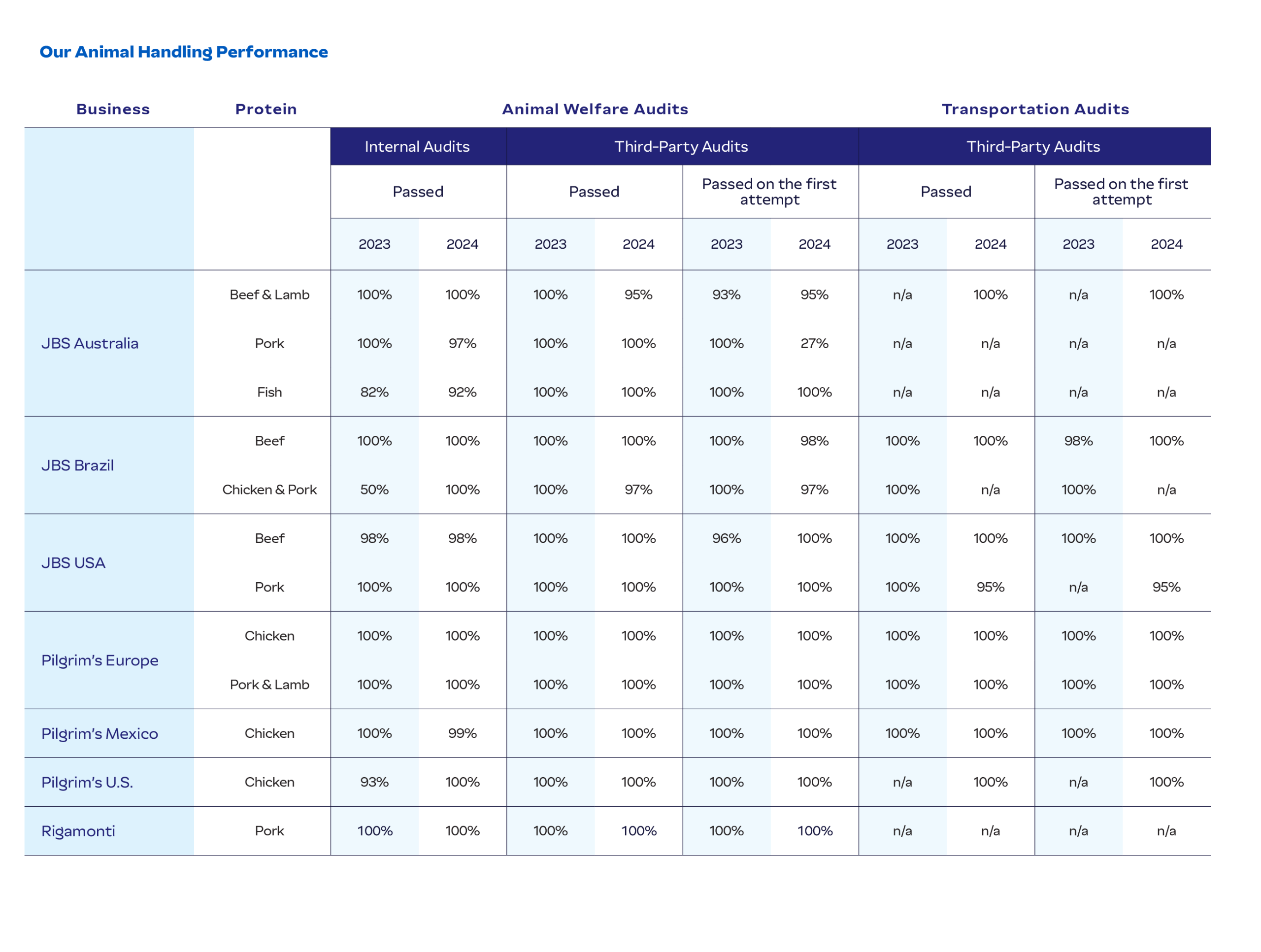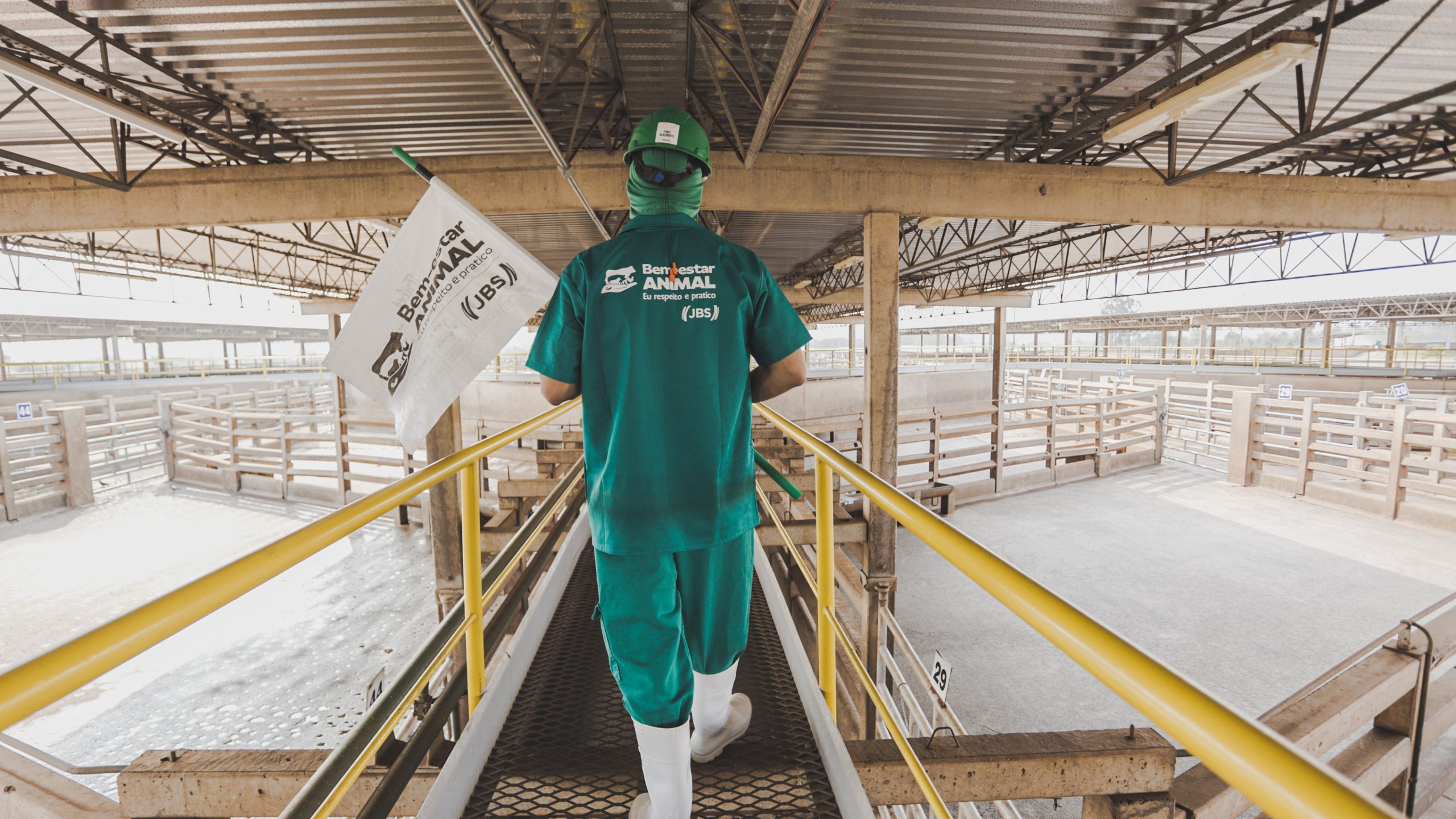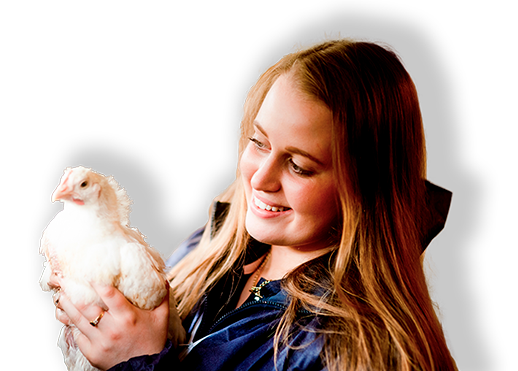Processing and Handling
(GRI 3-3)
Promoting animal welfare across our value chain includes strict adherence to the national and regional requirements that guide the humane handling and processing of livestock, poultry, and aquaculture at our plants and facilities.
Our dedicated teams work to ensure that animals are treated with care and respect throughout their time in our facilities. Through rigorous training, ongoing assessments, and continuous improvement initiatives, we strive to create a safe and comfortable environment for animals while maintaining compliance with all applicable laws and industry standards.
Australia: Australian Animal Welfare Standards and Guidelines; Australian Standard for the Hygienic Production and Transportation of Meat and Meat Products for Human Consumption
Brazil: Ministry of Agriculture and Livestock / Federal Inspection Service (MAPA/SIF)
Canada: Canadian Food Inspection Agency (CFIA) Meat Inspection
Europe: Council Regulation N˚1099/2009
Mexico: Buenas Prácticas Pecuarias en Producción de Pollo de Engorda de SADER y SENASICA
United States: U.S. Department of Agriculture (USDA) and Food Safety and Inspection Services (FSIS)
Animal welfare responsibilities are managed by our Animal Welfare and Food Safety and Quality Assurance (FSQA) teams. Each facility has a full-time Quality Assurance Manager, Animal Welfare Manager, Animal Welfare Officer (AWO), or veterinarian – or access to a regional team member responsible for overseeing the implementation of animal welfare programs. Their responsibilities include conducting facility assessments, managing training programs, and maintaining ongoing monitoring.
Additionally, each production facility includes team members from animal handling, processing, quality assurance, operations, procurement, and human resources, who work to assure that the policies and procedures required by our animal welfare programs – including annual training for all team members – are correctly implemented and followed.
Facility Standards, Trainings and Certifications
We go beyond legal requirements by training our team members and certifying many of our facilities to internationally recognized animal welfare standards. In Australia, JBS team members working with cattle, smallstock, and hogs receive training in accordance with industry Animal Welfare Officer (AWO) standards, while our processing facilities are accredited under the Australian Livestock Processing Industry Animal Welfare Certification System (AAWCS).
In the U.S., Brazil, and Canada, managerial animal welfare team members are certified as humane handling specialists through the Professional Animal Auditor Certification Organization (PAACO). Pilgrim’s Europe Pork facilities are certified to RSPCA standards and have achieved “Tier 1” status—the highest ranking—on the Business Benchmark on Farm Animal Welfare (BBFAW), reflecting exceptional animal welfare performance verified through an independently commissioned review.
Audits and Assessments
Our production facilities are regularly audited to verify compliance with our animal welfare standards. Quality assurance personnel conduct daily audits to verify adherence to each country’s respective compliance program for each protein type. Government inspectors also monitor our animal welfare practices daily to ensure compliance with applicable regulations.
JBS production facilities typically undergo third-party animal handling audits annually. If a violation of our standards or applicable laws is identified, we take immediate corrective action and schedule internal follow-up audits until the issue is resolved.

We’ve also implemented video auditing systems in many of our production facilities, enabling real-time internal auditing and immediate feedback for team members. The video footage is reviewed remotely by our animal welfare team and/or an independent third-party. These independent reviews verify compliance with our standards and legal regulations related to animal handling and welfare, including alerts and daily summaries sent to facilities for process improvement.


